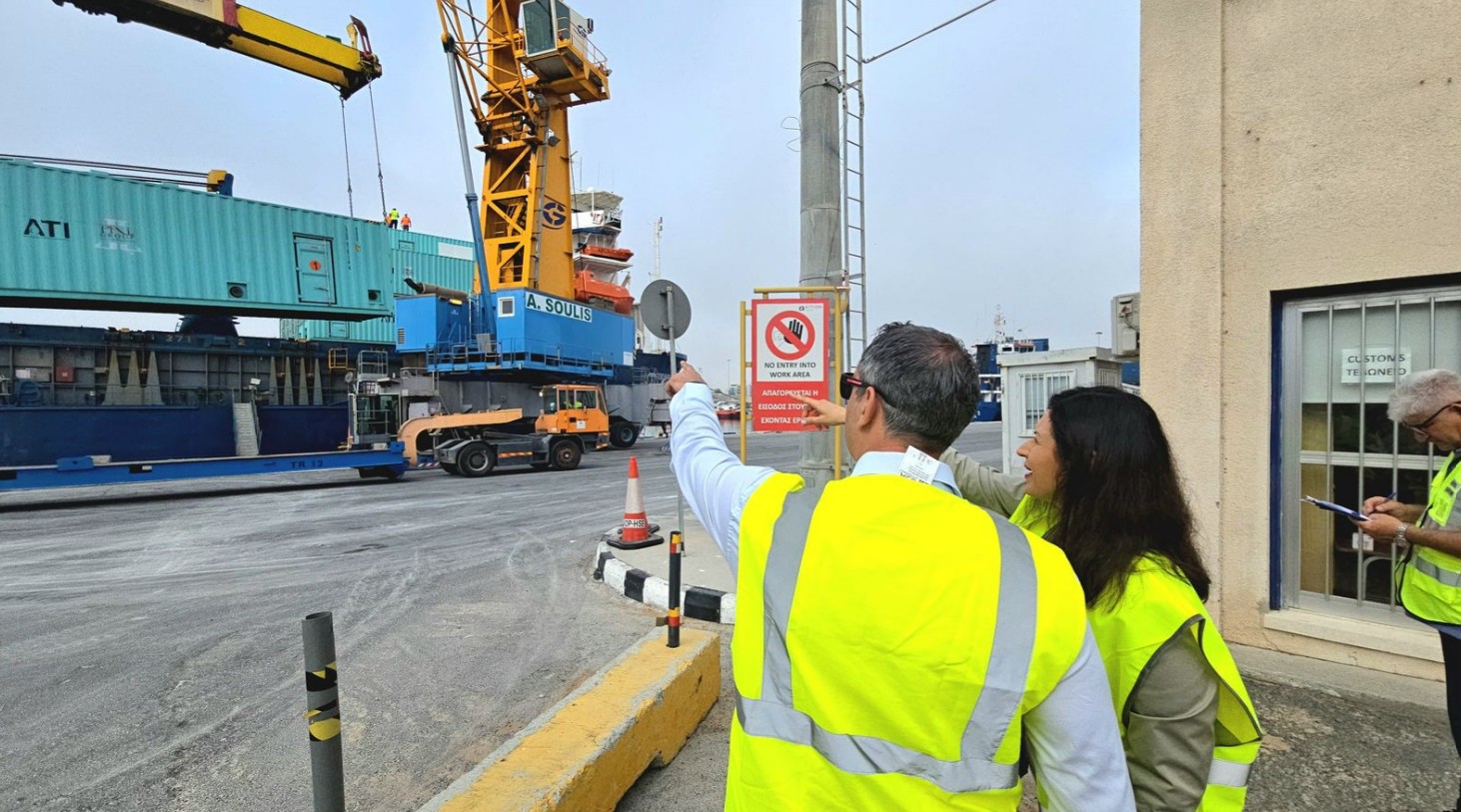
Newsroom
Mobile desalination units from the United Arab Emirates arrived in Cyprus over the weekend and are now being transported to Limassol and Paphos, just in time to help the island meet soaring water demand during the summer tourist season.
Agriculture Minister Maria Panayiotou was on site at Larnaca Port on Saturday for the units’ unloading. “They arrived right on time,” she posted online, confirming that the transfer to Limassol began around midday Monday.
A total of 13,650 cubic meters of desalinated water per day is expected to be produced by units going to Limassol. Paphos will receive one unit producing 1,350 cubic meters daily, plus another new unit with a 2,000-cubic-meter capacity.
The mobile plants are part of an urgent response to Cyprus’ deepening water crisis, as dam levels fall and drought conditions worsen. Authorities say they are not stopping here; more mobile units are planned for 2025, alongside longer-term solutions.
Additional installations are already underway in Garyllis and Limassol Port, as well as Kissonerga and Kouklia in Paphos, bringing the total planned desalination capacity to 25,000 cubic meters per day.

Water prices under review
While the units are expected to ease pressure on household water supply, officials are also studying whether water pricing needs to change. Speaking at the Green Agenda forum, Panayiotou confirmed the Water Development Department is reviewing rates but promised no immediate hikes.
Still, she acknowledged that under current drought conditions, a future price increase may be unavoidable.
Concerns over system reliability
Not everyone is convinced the new units will hit full production. Experts have warned that Mediterranean seawater’s higher salt concentration could pose problems for the system’s membranes, the filters that separate salt from water. If those membranes need replacing, it could delay the operation.
In that case, officials say water shortfalls could be covered temporarily through boreholes or reservoirs, a move that may impact agriculture.
Despite concerns, the government is banking on the UAE units to keep taps running and tourists happy this summer. With more heat and less rain on the horizon, Cyprus is racing against time and climate to stay hydrated.































